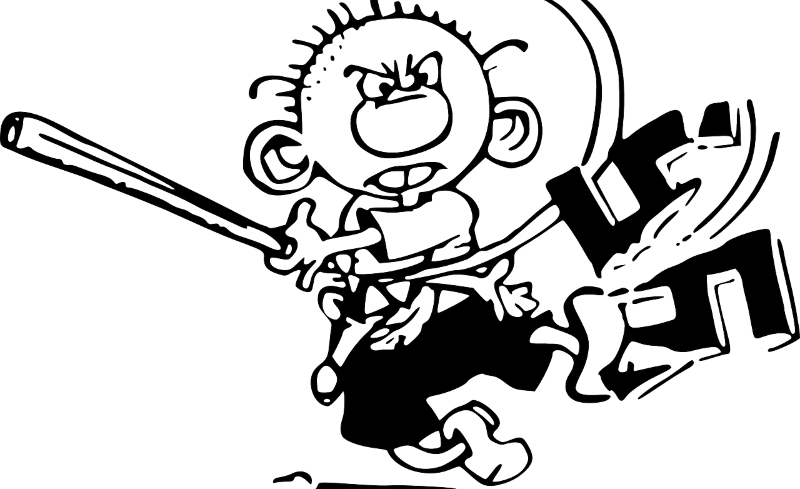
Thirty-five years ago, I graduated from Western Washington University with a degree in Political Science. I later became a politician, but that is not the purpose of a Poli Sci degree. I remember one of my professors saying, “We aren’t here to train you to run for office, just like geology professors aren’t training students to become rocks.”
Political Science is the study of government and political systems, and like all social sciences, terms have specific meanings. In this year of supercharged politics, I think it useful to clarify the words people are throwing around.
Intentionally or not, people on all sides are misusing a lot of Poli Sci terms. So, Let’s define the following: totalitarianism, authoritarianism, democracy, republic, socialism, fascism, and One Nationism, then apply these terms to where we are, and the choice before us.
- Totalitarianism: A system in which a dictatorial regime totally controls all aspects of society. There is no political freedom; the state dictates everything, down to the clothes you wear, the books you read, the music you listen to. Totalitarianism is rare. Examples would include Soviet and Chinese communism under Stalin and Mao, and Hitler’s fascist Germany.
- Authoritarianism: Political rule by an individual or group, often military officers, not subject to democracy or the rule of law. Under an authoritarian regime you can do as you please and live your life, as long as you don’t challenge the boss. Courts are not independent. The press is censored. If elections are held, they are rigged. This is by far the most common form of non-democratic government.
- Democracy: Any system in which citizens choose their leaders by free elections. The rule of law applies to everyone, even those holding high office.
- Republic: This word is often misused, especially by Republicans. A republic is any nation without a monarchy. Our Constitution mandates “a republican form of government,” because when it was written, the founders viewed monarchy as the greatest threat to freedom. Great Britain is a democracy, but not a republic; while China is a republic, but not a democracy. The United States is a democracy and a republic. Get it?
- Socialism: Another term that causes a lot confusion. Socialism is an economic system, not a political system. Under socialism all or most goods and services are provided by the government. Many democracies have elected socialist governments since World War II and yet remained democracies. America’s economic system, with public education, public utilities, and a large system of social safety net programs, is closer to socialism than it once was, but much less so than most European democracies. Our economy is still based on capitalism and free markets.
- Fascism: Fascism is a totalitarian or authoritarian system that exalts nation or race over the individual or the rule of law (as opposed to communism which exalts class). Fascists reject the notion of pluralism and “globalism” in favor of “nationalism.” German Nazism, of course, is the most famous example, but there have been many fascist regimes during the last 100 years, and today many nations, from the Philippines, to India, to eastern Europe, are trending towards an authoritarian form of fascism.
- One Nationism: This is a British term for a set of moderate programs designed to suppress class differences and create one nation. The core tenet of this philosophy is the belief that reform, and a robust system of social welfare programs, not socialism, laissez-faire libertarianism, or fascism, is the right path to create a healthy society, to “build a more perfect union.” One Nationism has been the mostly unspoken underlying ideology of both America’s political parties for most of the last 120 years.
Today we are moving away from centrist consensus.
Donald Trump’s flirtations with white supremacists, his “America First” isolationism, and especially his nativist fixation on not just stopping illegal immigration but doing everything he can to reduce the number of people of color coming to America, amount to early stage fascism. And his attacks on the press and the courts, his willingness to seek illegal foreign political assistance, his bullying of the Justice Department, and his arrogant dismissal of any congressional oversight, are classic authoritarianism. Donald Trump is taking America down a new dark path.
Unlike Trump, Bernie Sanders isn’t a threat to democracy and the Constitution, but his ideas would radically alter our economy. Sanders and the left wing of the Democratic Party call themselves “Democratic Socialists,” and so they are. Their policy proposals, Medicare for all, a federal jobs guarantee, free college, free daycare, are giant strides towards socialism.
Very soon America may be forced to choose between neo-fascism and socialism, but we still have a third option. With the possible exception of Elizabeth Warren, the other Democrats still viable in the race for president, Biden, Bloomberg, Buttigieg and Klobuchar, are all traditional One Nation centrists. Choosing that path would essentially restore the pre-Trump status quo.
The choice we make this year will be historic, so we should be precise in how we debate our options. Words matter; especially right now.
Discover more from Post Alley
Subscribe to get the latest posts sent to your email.

Great piece. Got into a spat with someone recently who claimed the United States is a republic and the founders had no use for democracy. I corrected the view, similarly as you did here, but he wouldn’t listen. And, in fact, questioned my intelligence, experience and education. This needs to be shared.
Thank you!